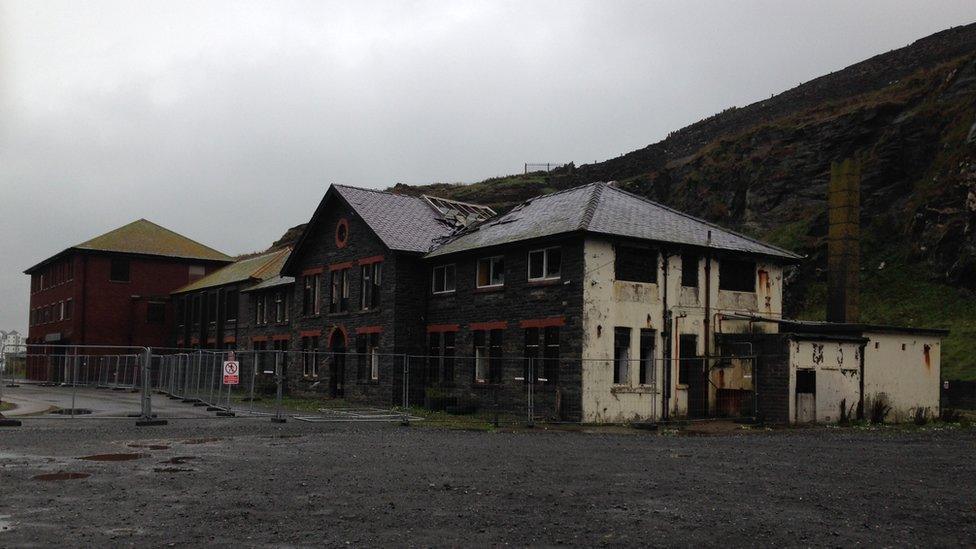Scientists hail Port Erin marine lab's impact on marine biology
- Published

Jeremy Paul, Andy Brand, Richard Hartnoll and Roger Pullin helped put the exhibition together
The legacy of a renowned Isle of Man laboratory will "live on" in the world of marine biology, the scientists who worked there have said.
Generations of academics studied at the Marine Biological Station in Port Erin, which closed in 2006.
An exhibition by former staff and alumni of the lab's 100-year history is now on display in the village.
Jeremy Paul said the closure was "a great loss, not only to science but the island".
He researched a PhD on scallop farming at the station in the 1970s, and described the lab as "pivotal in my life and career".
Students and professors mixed "in a way which did not happen at a main university campus", Dr Paul said, adding: "It was just a fabulous place to work."
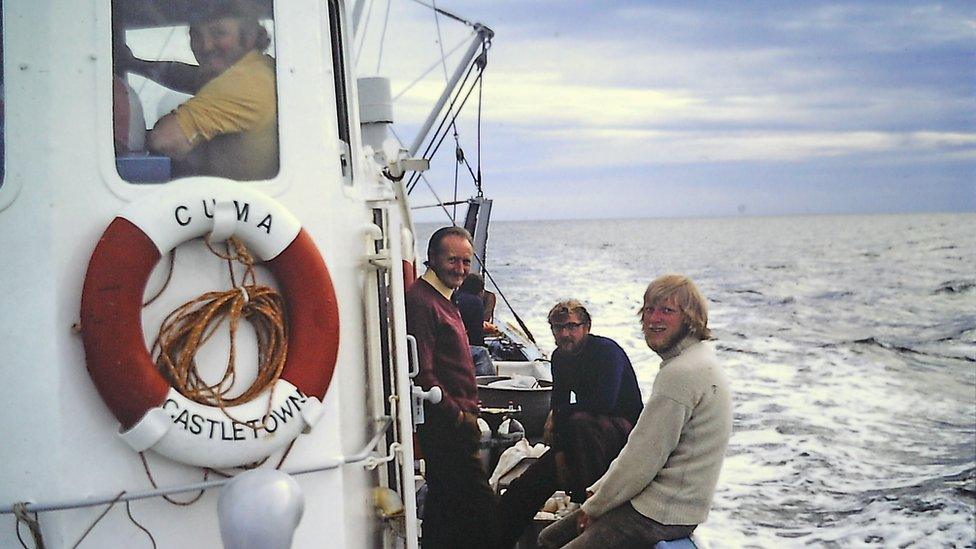
Former students and staff said the lab was a "special place" to work and study
Richard Hartnoll was a student there in 1956 before joining the staff until his retirement in 2004.
"There are not many labs where you can walk out of the door, be on the shore in two minutes, walk out with your diving gear on, jump into the water and dive along a ruined breakwater," he said.
Andy Brand, the station's last director, said "the name of the Port Erin lab and the Isle of Man is very widely spread around the world in marine biological circles".
Alumni went to work "all over the world" with many foreign students travelling to the island to study at the lab, he added.
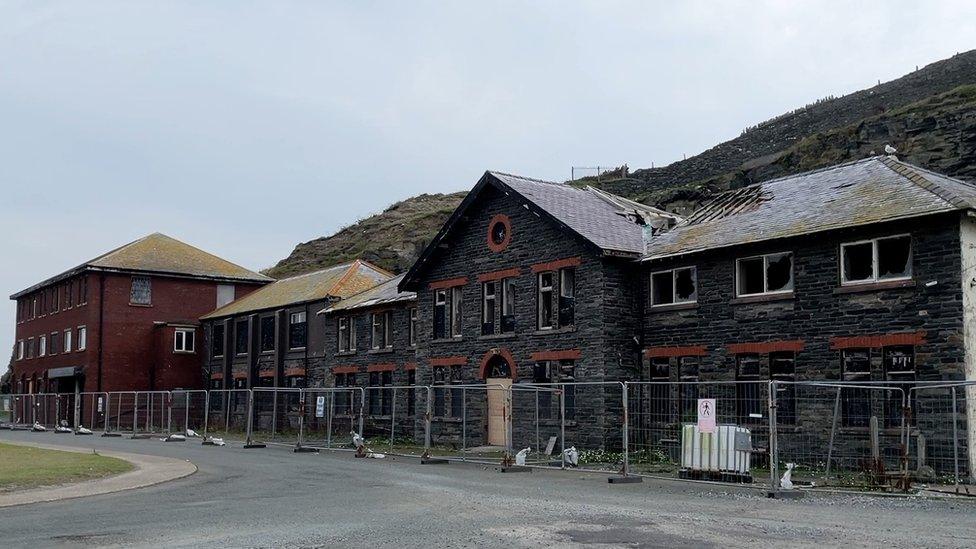
The site has been left derelict since it closed in 2006, and was damaged by a fire in 2016
But the lab's closure in 2006 "should have been avoided" according to Roger Pullin, who worked there from 1968.
"It's legacy lives on, and is there in scientific publications and in people and all that they continue to do around the world," he said.
Re-establishing a "centre for excellence for marine biology" on the island would be "very well worth doing", he added.
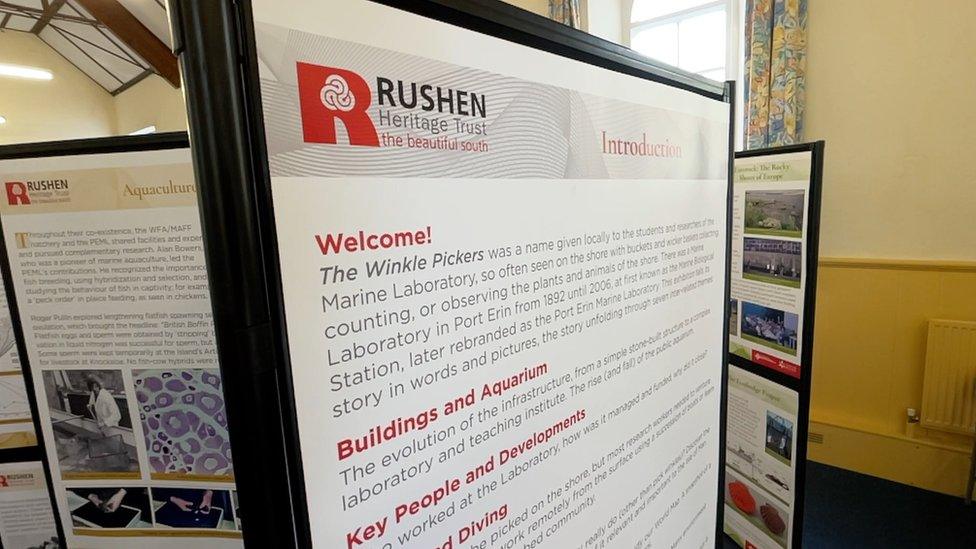
An exhibition celebrating the history of the lab by the Rushen Heritage Trust has opened

Why not follow BBC Isle of Man on Facebook, external and Twitter, external? You can also send story ideas to IsleofMan@bbc.co.uk, external
Related topics
- Published20 August 2022
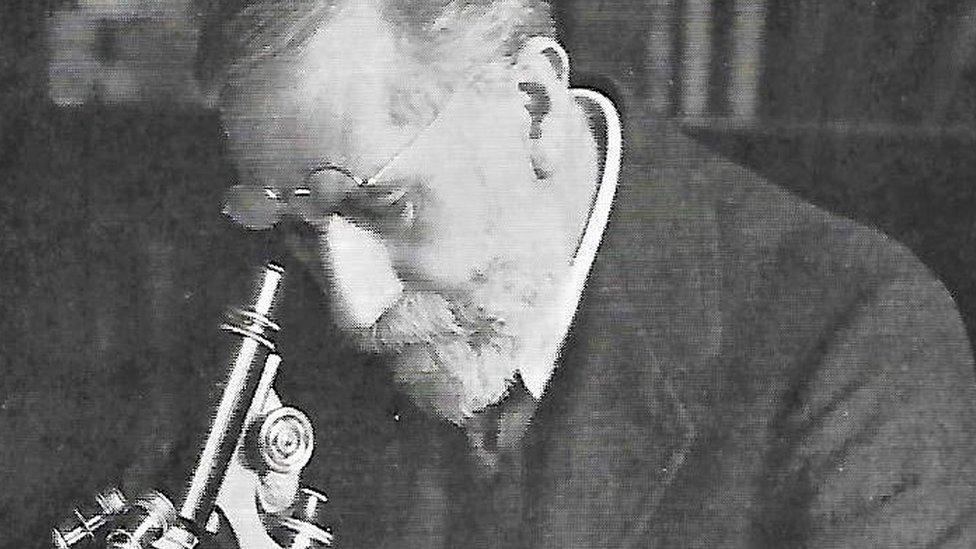
- Published28 March 2022
